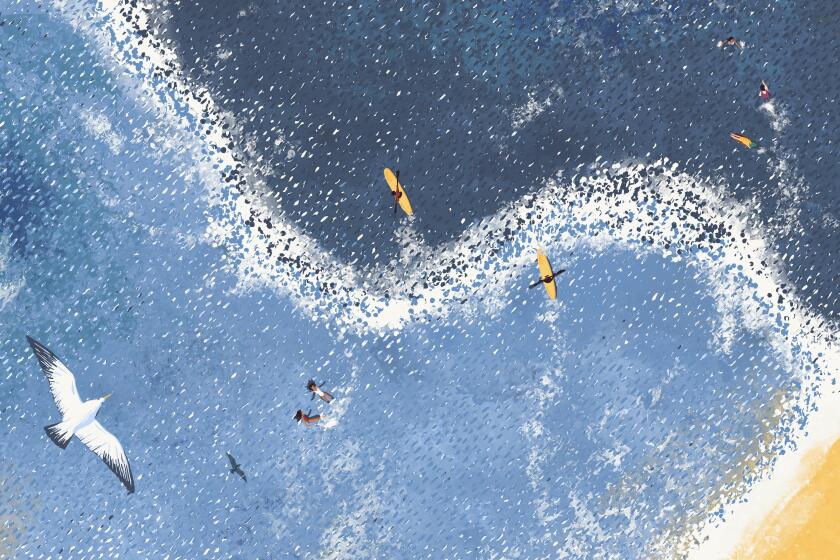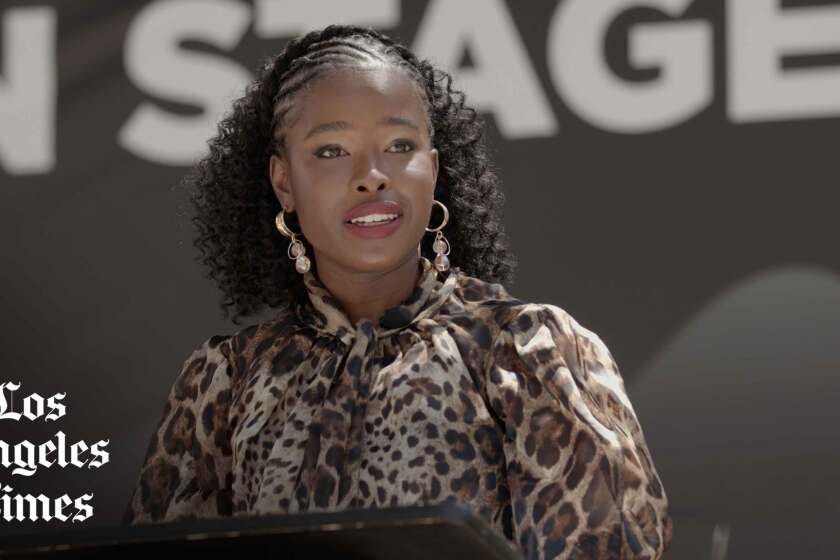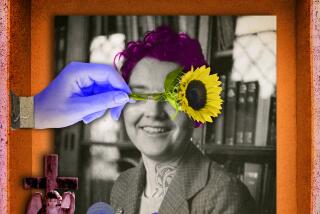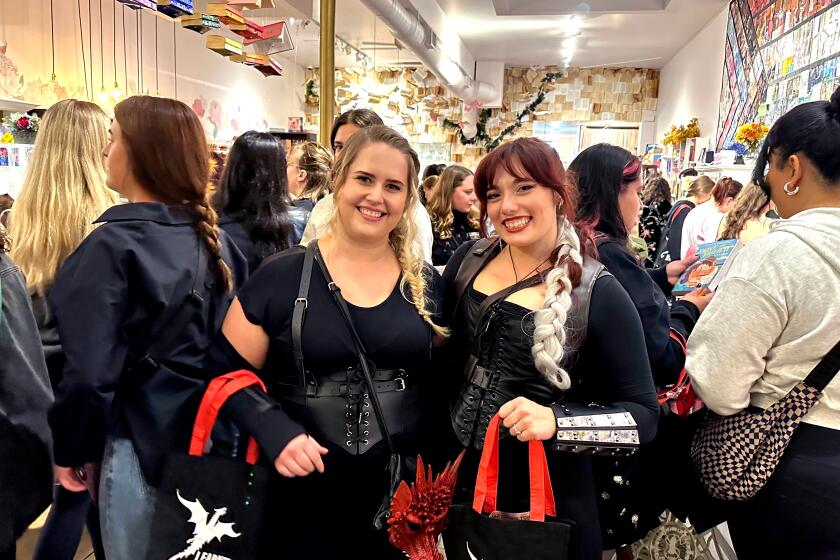Ada Limón is the poet of our lonely, terrifying moment
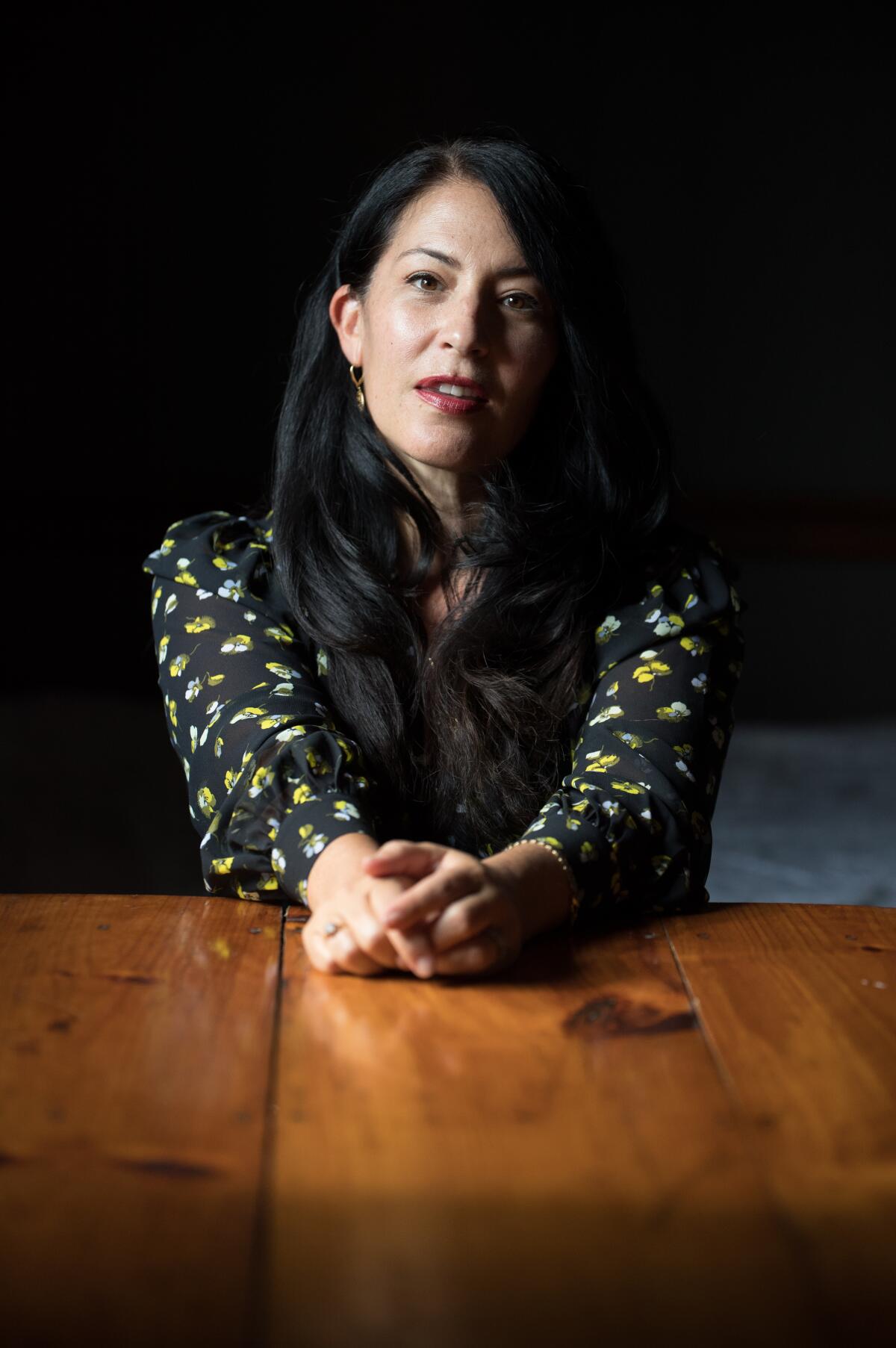
- Share via
On the Shelf
The Hurting Kind
By Ada Limón
Mlikweed: 112 pages, $22
If you buy books linked on our site, The Times may earn a commission from Bookshop.org, whose fees support independent bookstores.
Ada Limón opens her sixth book of verse, “The Hurting Kind,” with an epigraph from the Argentine poet Alejandra Pizarnik: “Though it’s late, though it’s night, / and you are not able. // Sing as if nothing were wrong. // Nothing is wrong.” It’s a striking set of lines, especially in the current moment, when reality itself appears to have slipped the rails. The lingering effects of the pandemic, the fallout from the Jan. 6 insurrection, the draft decision that may overturn Roe vs. Wade — it seems impossible to imagine that we will ever know anything other than upheaval or worse. At the same time, what other choice do we have but to live?
The poems in “The Hurting Kind” embody such an existential tension: the terror of dislocation and loneliness, the intention to record (or see) things as they are. Broken into four sections, each representing a season, the book offers reflections on nature; on love and family; and most particularly on isolation, including that of lockdown. “I am the hurting kind,” Limón acknowledges in the exceptional title poem. “I keep searching for proof.” For proof, yes — proof of life, for one thing, but also proof of living, the commitment to face each day, each circumstance, as it comes.
“It’s been a year / since I’ve seen him in person,” she recalls in “My Father’s Mustache.” “I miss how he points / to his apple trees and I miss his smooth face / that no longer has the mustache I adored. / As a child I once cried when he shaved it. Even then, / I was too attached to this life.” The name of the poem is instructive: It is an elegy to absence in its many forms. And yet what is absence but a different kind of presence? “Once I was brave, but I have grown so weary of danger,” Limón asserts in “I Have Wanted Clarity in Light of My Lack of Light,” the title of which borrows a line from Pizarnik. “I am soundlessness amid the constant sounds of war.”
I was loved enough where I was free to drift away.
The subtext here is difficult. Pizarnik died by suicide in 1972, at 36. This makes her one more ghost in a collection infused with them. “Today is a haunting,” Limón writes in “The Magnificent Frigatebird.” And: “We swallow dead things.” At the same time, “The Hurting Kind” is a book of living language — and nowhere more than in the way words animate the poems.
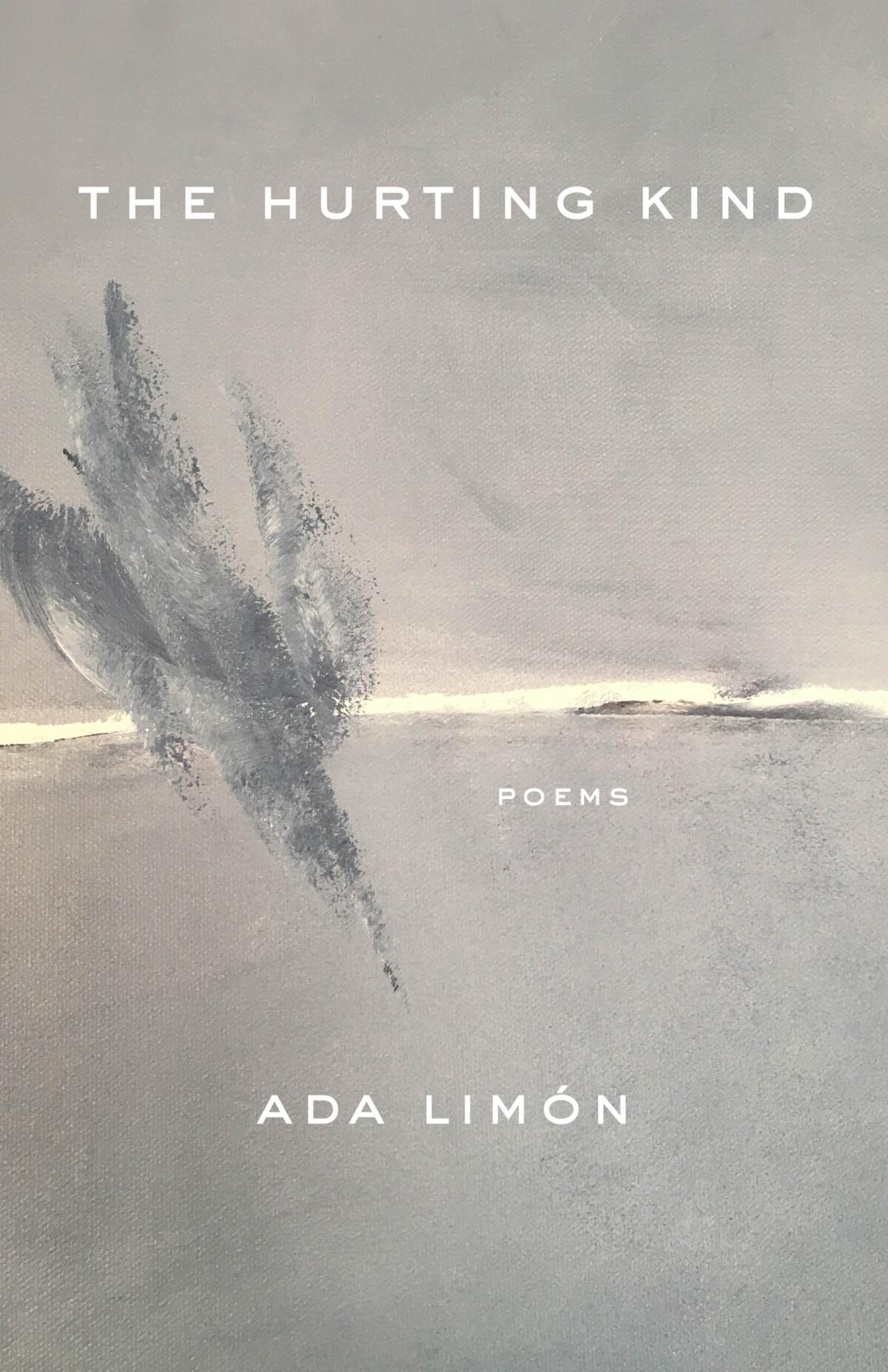
“The Magnificent Frigatebird” represents a case in point; it starts with a question (“Is it okay to begin with the obvious?” and an admonition (“A mentor once said, You can’t start a poem with a man looking / out a window. Too many men looking out a window”) before turning specific and sharp. The key is the language, which saturates the poem as undertone and also breath.
The title, for instance, refers to the “large seabirds … Eight foot wingspan and gigantic in their confident gliding” that Limón once observed in the South Atlantic; she only learns what they are called afterward. “It sounded like that enormity of a bird had named itself,” she declares, highlighting the magnificence of both the creature and its name. “What a pleasure to say, I am Magnificent. … It makes me want to give all my loves the adjectives they deserve.”
All her loves, yes — the grandparents and stepparents and parents, the friends and partners, romantic and otherwise. “I’m thinking of car rides / from Brooklyn to the Cape,” the poet writes in “Blowing on the Wheel,” “… or out to Stockbridge that one winter / with H and her sister and cousin / … And I accidentally said, Have a Norman Mailer / Christmas and not a Norman Rockwell Christmas / and we laughed at how sad a Norman Mailer / Christmas would be.”
Gorman read her poem “Fugue,” about the ravages of the pandemic, publicly for the first time at the Los Angeles Times Festival of Books on Saturday.
That’s a vivid riff, not least because it’s funny; I love a poem that makes me laugh. Still, let’s not overlook the technical achievement: the flow of the images, one into another, the echoes that reverberate almost like slant rhymes. All those “Christmases,” all three of them … they add up to a series of refrains. The effect is to ground us in the specificity of the moment, the specificity of the scene.
I know: Scene is an odd word to use in regard to a poem, but for Limón’s work it feels right. This may have to do with the prose she has written as both a copywriter and a freelance journalist. She has called her 2015 collection, “Bright Dead Things,” shortlisted for a National Book Award, “the byproduct of a failed novel.” Her 2018 follow-up, “The Carrying,” which won a National Book Critics Circle Award, is a multipart meditation on fertility and the care of aging parents, among other issues: life on the most concrete terms. Throughout her work, the language is direct and unadorned while also playful and full of unexpected turns. Something similar is true of “The Hurting Kind,” which is a quieter book — but no less fierce for being so.
All this comes to a point in the closing poem, the (perhaps) appropriately named “The End of Poetry.” Here, Limón complicates much of what has come before in this collection, its attention to nature and to distance — to waiting, really. Now she reconsiders the consolations of “osseous and chickadee and sunflower,” as well as “the kneeling and the rising and the looking / inward and the looking up, … enough / of the mother and the child and the father and the child / and enough of the pointing to the world, weary / and desperate, enough of the brutal and the border, / enough of can you see me, can you hear me.”
It’s a stunning way to end the book, because of the language again — could there be a better bit of wordplay than “world, weary”? — and also because of the insistence that language is no longer enough. When Limón exclaims, in the last line of the poem and the collection, “I am asking you to touch me,” she is writing out of the darkness of the pandemic, but she is also addressing something more universal and profound. What are words worth if they can’t help to bridge the gaps between us? It’s a question many of us are asking as we try to navigate this fallen world.
T.C. Boyle, Viet Than Nguyen, Rachel Kushner, Carribean Fragoza, Tom Perrotta, Charles Yu, Michelle Tea, Dana Johnson, Luis J. Rodriguez on their pandemic years.
Ulin is the former book editor and book critic of The Times.
More to Read
Sign up for our Book Club newsletter
Get the latest news, events and more from the Los Angeles Times Book Club, and help us get L.A. reading and talking.
You may occasionally receive promotional content from the Los Angeles Times.
